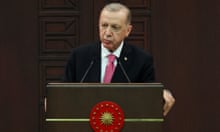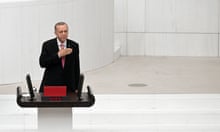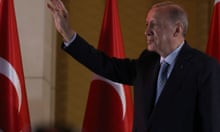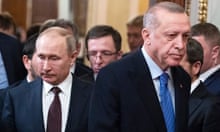Voting is not synonymous with democracy. Take Thailand. In 2014, the military launched the latest of its many coups. But juntas are not a good look for modern economies, so elections eventually arrived this year. The promise was a return to democracy; the intention was to prolong rule by the military, which created its own party. The constitution was rigged to boost its chances, 45 days taken to tally votes – announced this Wednesday – and a bizarre, elaborate formula used to calculate the outcome. The leader of a new pro-democracy party which performed well has been hit by multiple legal cases including a charge of sedition. After all this, the coup leader is expected to retain his position as prime minister, this time with the veneer of an electoral mandate.
In many places, leaders have increasingly inventive means to produce the results they want. Alongside old favourites – gerrymandering, ballot box stuffing, vote buying and menacing the opposition – come more ingenious measures: resurrecting the dead (at least on electoral rolls) or launching online disinformation campaigns. In March’s presidential election in Ukraine, the high profile politician Yulia Tymoshenko found herself next to another YV Tymoshenko on the ballot paper. In Benin’s elections last month, new financial rules disqualified all opposition parties from running.
In their book How to Rig an Election, Nic Cheeseman and Brian Klaas argue that elections can be useful for autocrats. They provide an opportunity to split the opposition, ginger up their political base and keep ambitious rivals in their own ranks under control. The quasi-legitimacy of an election victory allows funding from western donors to flow. In a totally controlled society, voting can even become another ritual of obedience: North Koreans elect their puppet legislature – using ballot papers containing a single name, without even a box to tick.
But for the most part, authoritarians hold votes because elections are already in place, and a Potemkin poll provokes less outrage than no poll at all. The longer a leader is in power, the more likely it is that elections will be of bad quality, argue Prof Cheeseman and Dr Klaas. In Turkey, Recep Tayyip Erdoğan has purged critics, jailed journalists, rewritten the constitution to give himself sweeping new powers and ruthlessly attacked Turkish institutions – but prided himself on winning power at the ballot box (even if some of the votes hardly looked pristine). Now authorities have ordered a rerun of a vote for the Istanbul mayor, after Mr Erdoğan’s AK party endured a shock defeat in municipal elections. The European parliament’s Turkey rapporteur said the decision “ends the credibility of democratic transition of power through elections” in the country.
Calling out such cases is critical. Creating an international body of independent, expert election observers would improve the quality of witnessing and free them from the risk of political pressure from their own governments. Substantial funding is needed to develop and implement ways of challenging the threats posed by new technology, such as “deep fake” videos. But addressing what has happened is as important as recording it. Donald Trump may be an obvious offender, but plenty of western leaders will gloss over dubious results when it suits them. It isn’t surprising that autocratic leaders seek to undermine the institutions and mechanisms which might restrain them. But democracies that turn a blind eye should ask whether they truly deserve the name.









